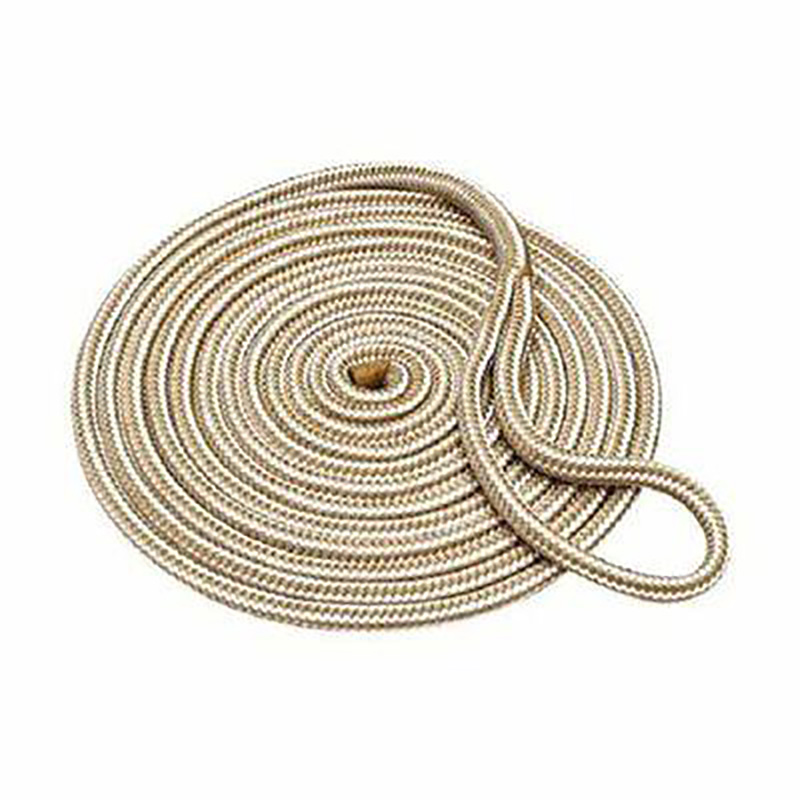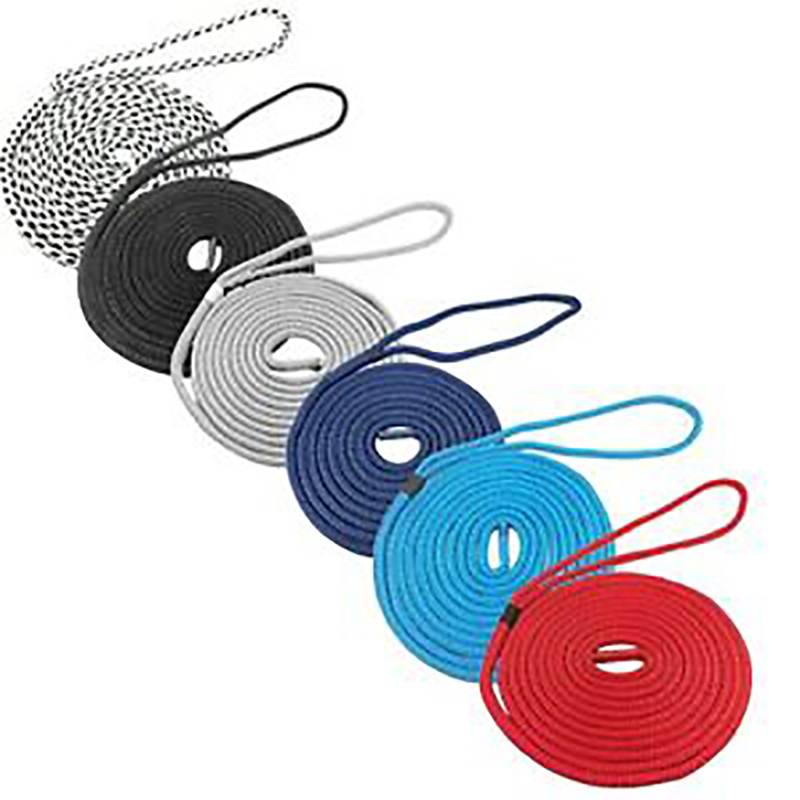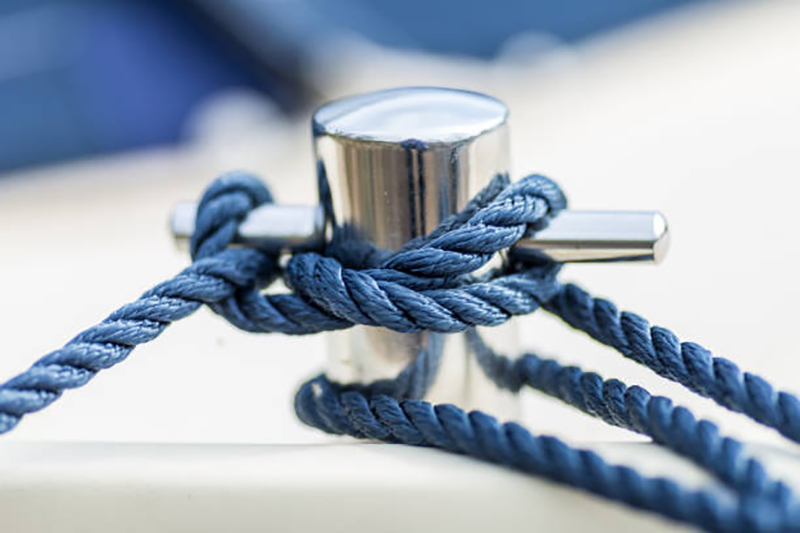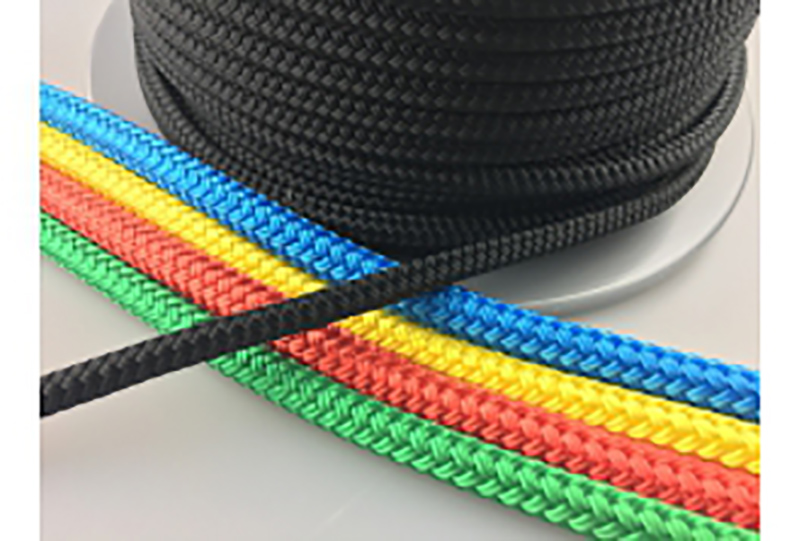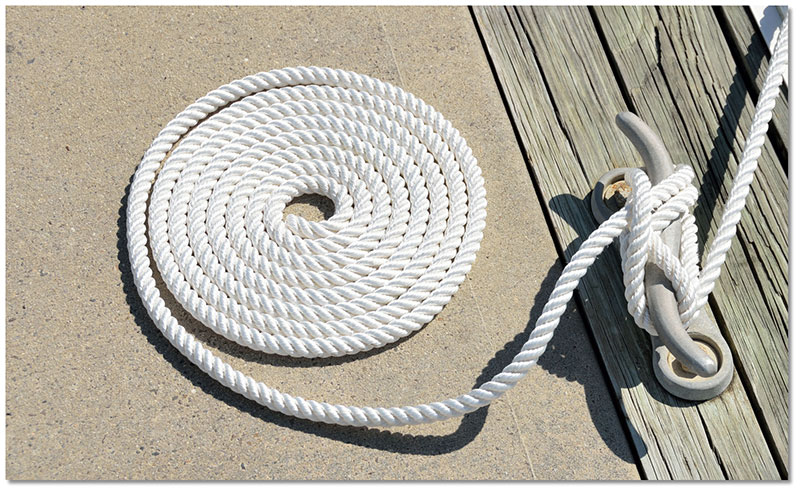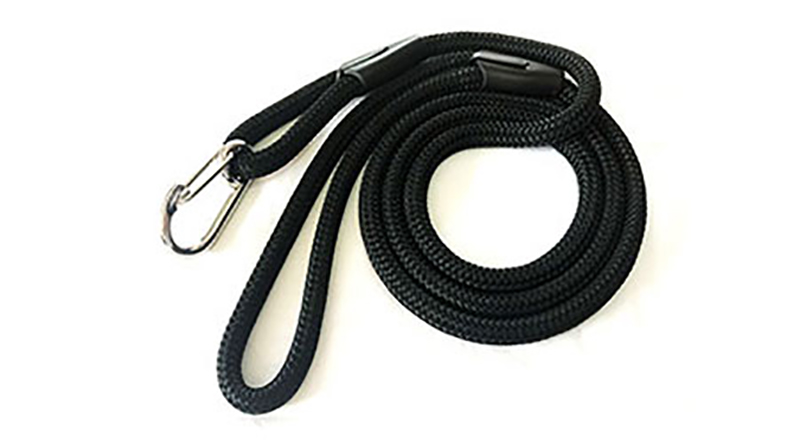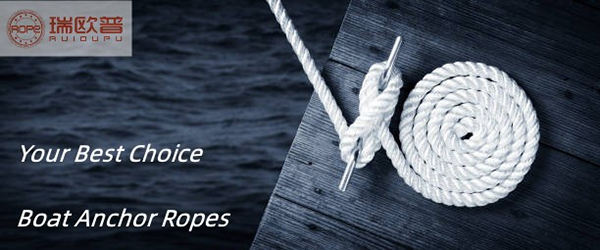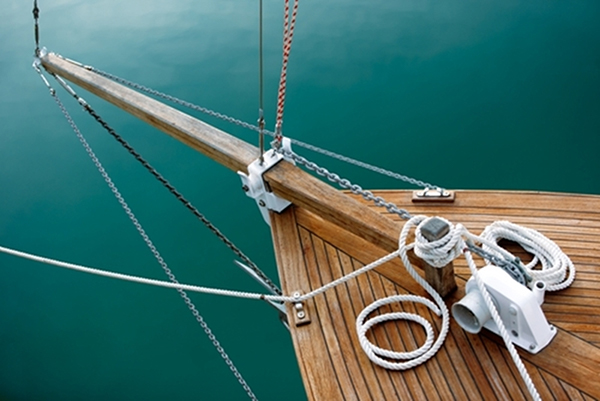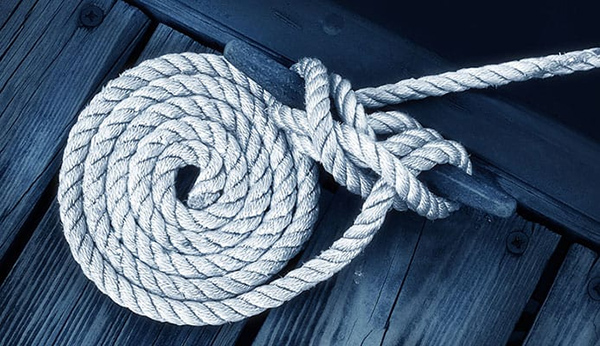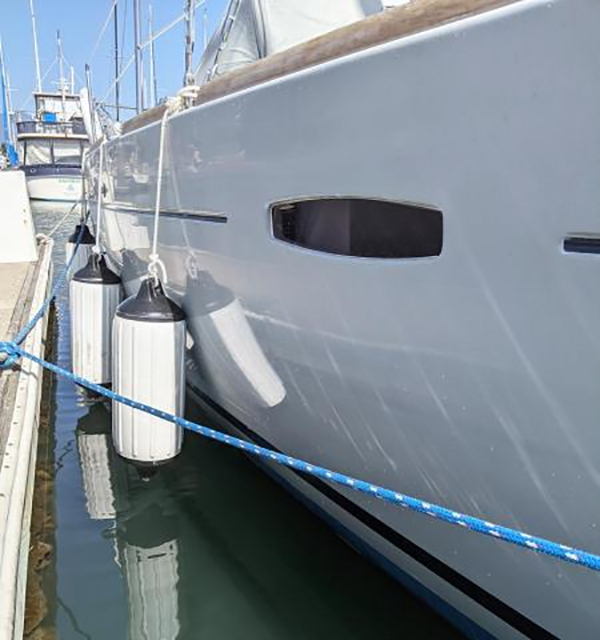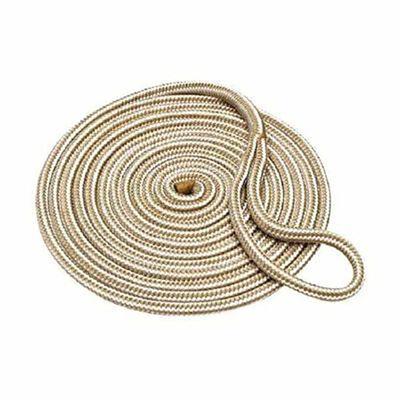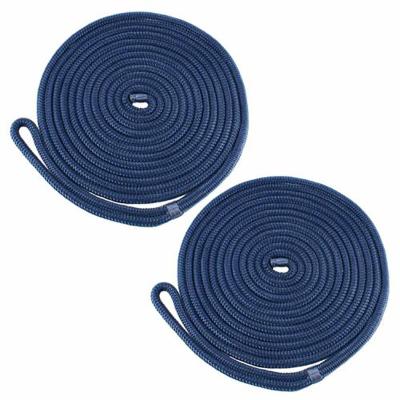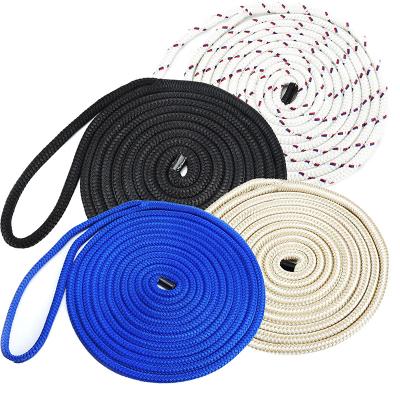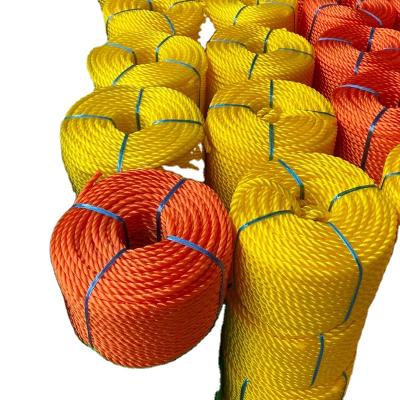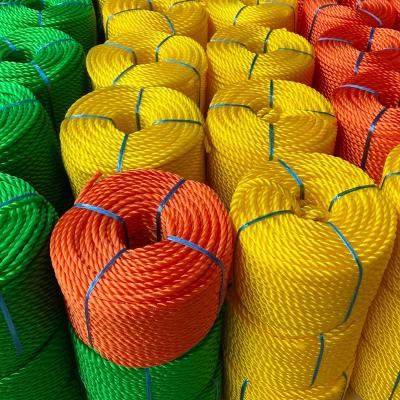Cuerda de ancla
Heat sealed & whipped bitter end
Marine-grade nylon
Durable and lengthy wearing
Slightly more desirable with much less stretch than 3-strand nylon
Superb coping with and the greatest assortment of colorings on the market
Available through the spool or in packaged, manufacturing facility spliced dock and anchor lines
Applications: Dock lines, anchor strains and mooring strains
Dale a tu barco una apariencia nítida y bien cuidada con de primera clase trenza doble trazos que superan a todos los demás.El agregado de excesivo nylón marino de grado extraordinario torque equilibrado construcción y un especial estabilización manera produce una línea larga de uso práctico para manejar que resiste las torceduras. Esta es la línea más resistente y fácil de manejar que puede comprar que permanece flexible en el curso de su proveedor||| |vida. La doble trenza se estira se estira apenas mucho menos sin embargo son más adecuadas que las líneas de 3 hilos. Empalmado profesionalmente con un ojo de 12" en un extremo.
Característica
Alta flexibilidad y fácil manejo.
Empalmes fácilmente
Resistente al desgaste, larga vida útil
Cómo elegir el tamaño, el tipo, la longitud y más de una cuerda de anclaje ?
¿Qué tipo de cuerda debo usar? ¿Nylon, poliéster o...?
For most boaters, the excellent kind of rope to use when anchoring is nylon. Nylon has many blessings for anchoring including:· It's elastic consequently presenting correct shock absorption
· Light and flexible
· Good strength
· The most frequent anchor rope determined in marine stores
· It sinks
Nylon anchor rope is light, flexible, strong, and presents elasticity, which mitigates top masses on your anchor and boat. Unfortunately, the very reality that nylon stretches ability that it creates warmth and will sooner or later damage down and want to be replaced. However, you desire a robust rope that will soak up the shock from waves and sink, no longer float. Nylon matches the invoice of all of these things.
¿Cuál es la diferencia entre cuerda trenzada y torcida?
In our experience, for most leisure boaters, the distinction between the use of twisted anchor rope or braided anchor rope comes down to choice and taste. Both make super preferences for an anchor rope however there are some refined variations between these two patterns of rope.cuerda trenzada-
Ventaja
· Menos rígido y más flexible
· Con frecuencia más fuerte que una cuerda retorcida
· Más fácil para las manos
Desventaja
· Difícil de empalmar
· Menos estiramiento que cuerda retorcida
cuerda retorcida-
Ventaja
· Bastante fácil de empalmar
· Generalmente menos costoso
· Tiene más estiramiento que trenzado
Desventaja
· Tiene tendencia a enroscarse o gritar
· Más rígido y menos flexible
¿Cuánta cuerda de anclaje necesito y de qué tamaño?
One of the questions we get requested most frequently is, "How plenty anchor rope and/or chain do I need?" When choosing how a whole lot rope and chain you want there are a couple of policies of thumb to use.1. You have to have eight toes of rope for each 1 foot of water you will be anchoring in
2. Your rope need to have 1/8" of rope diameter for each 9' of boat.
So this capacity a 28' boat would choose at least a 3/8" or 1/2" diameter rope. Rope is one of these things, like anchors, the place better typically is better.
As for a rope choice, Nylon is the clear favored due to the reality it is elastic and tremendously strong.

Solicitud

